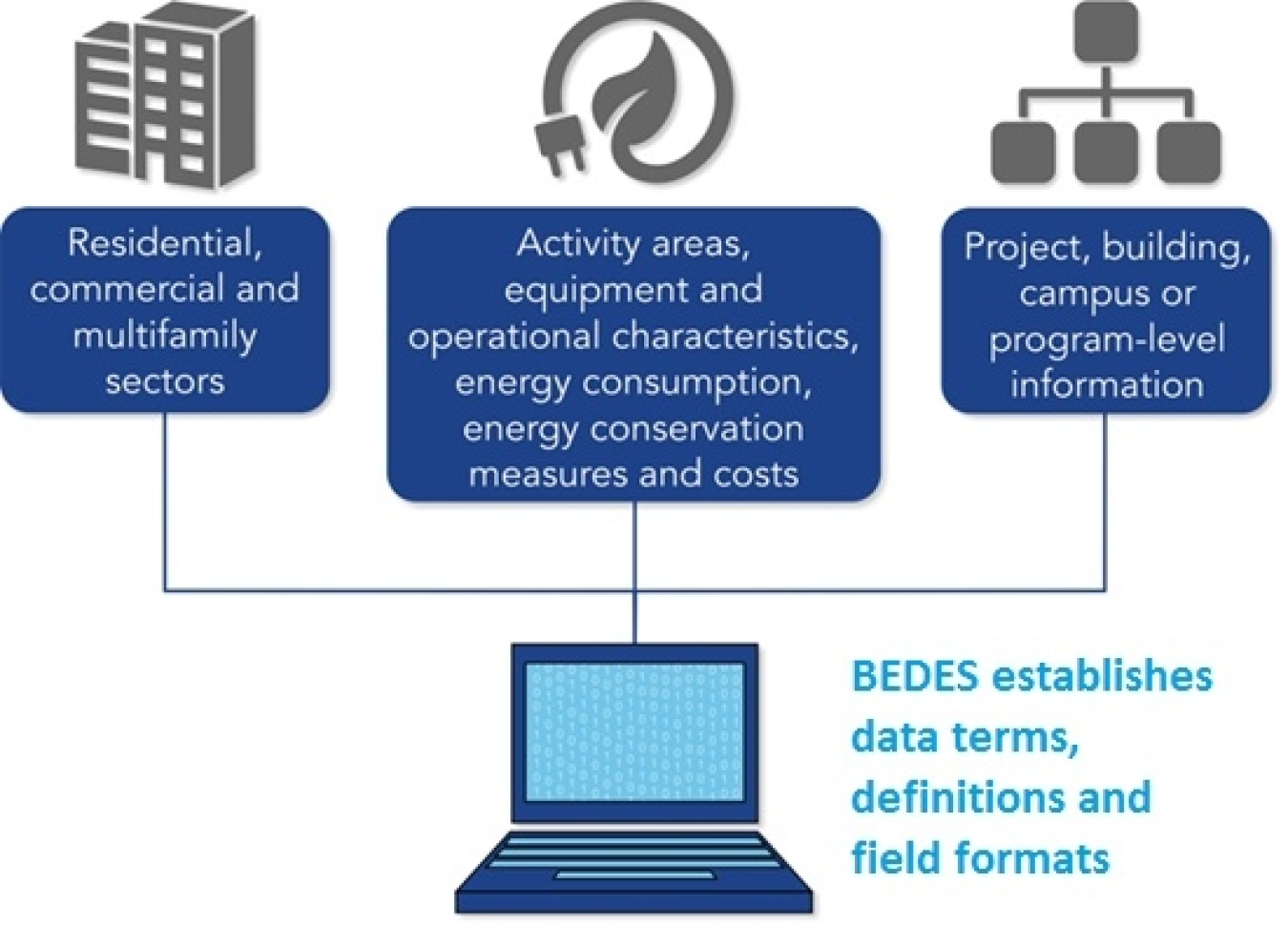
Project website: https://bedes.lbl.gov/
Performers:
-- Lawrence Berkeley National Lab, Berkeley, CA
-- Hitchcock Consulting, Bend, OR
-- Maalka, Brooklyn, NY
Performance Period: October 1, 2014 –
DOE Budget: $80K in FY23
Funding type: Commercial Buildings Integration (CBI) core funding
Related Projects: SEED, BuildingSync, BPD, SBIR 2018: Maalka
Project Overview
The amount of building energy data available in digital form is increasing rapidly via programs such as city energy disclosure ordinances and audit mandates, the digitization of previously paper-based building transactions, as well as the Internet of Things (IoT). However, the use and utility of this data is not growing as rapidly. One of the core issues is a lack of standardization in terminology and vernacular for quantities as basic as floor area!
The Building Energy Data Exchange Specification (BEDES, pronounced "beads" or /bi:ds/) is a dictionary of terms, definitions, and field formats that was created to help address this problem. BEDES is not a software tool, database or even a schema. It is a dictionary upon which interoperable schema, databases and software tools can be built.
The BEDES 1.0 data dictionary was released in October 2014 after a nine-month technical working group process led by Lawrence Berkeley National Lab. It was based on a review of more than 40 different public and private sector data formats, including ENERGY STAR® Portfolio Manager and Green Button. The BEDES technical working group has continued to expand BEDES and advance its use.
Additional information about BEDES can be found on the BEDES FAQ.
Project Impact
DOE has already begun to use BEDES in its publicly available building energy-efficiency tools. BEDES can also be used by private-sector software tools and databases. Software developers and other organizations that collect or distribute building energy data can either adopt an existing BEDES-compliant schema that uses BEDES terms, or develop their own. BEDES-compliant products can be recognized by DOE on its website, in communications materials, and in events. You can learn about BEDES compliance and see a list of BEDES-compliant and related schemas and tools on the BEDES project site.
As the number of BEDES-compliant tools grows, the effort and cost associated with aggregating, reusing, and sharing data will be reduced. This will enhance the utility and value of the data itself and grow the incentives to collect, organize and share additional data.
Contacts
DOE Contacts: Sydney Applegate, Sam Petty
Principal Investigator: Joshua Kace, LBNL
For more information: BEDES@ee.doe.gov
Publications and Presentations
Receive updates about BEDES by submitting your email address.

